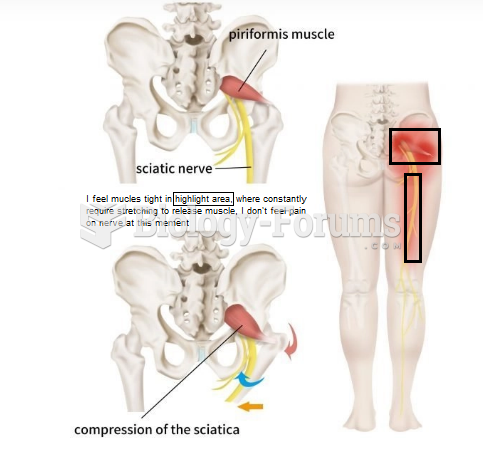|
|
|
When taking monoamine oxidase inhibitors, people should avoid a variety of foods, which include alcoholic beverages, bean curd, broad (fava) bean pods, cheese, fish, ginseng, protein extracts, meat, sauerkraut, shrimp paste, soups, and yeast.
Oliver Wendell Holmes is credited with introducing the words "anesthesia" and "anesthetic" into the English language in 1846.
Cancer has been around as long as humankind, but only in the second half of the twentieth century did the number of cancer cases explode.
The lipid bilayer is made of phospholipids. They are arranged in a double layer because one of their ends is attracted to water while the other is repelled by water.
Coca-Cola originally used coca leaves and caffeine from the African kola nut. It was advertised as a therapeutic agent and "pickerupper." Eventually, its formulation was changed, and the coca leaves were removed because of the effects of regulation on cocaine-related products.
 Rituals such as the sacrament of the Anointing of the Sick are important expressions of religious be
Rituals such as the sacrament of the Anointing of the Sick are important expressions of religious be
 With tough economic times, a lot of people have lost their jobs—and their homes. If this happens, ...
With tough economic times, a lot of people have lost their jobs—and their homes. If this happens, ...





